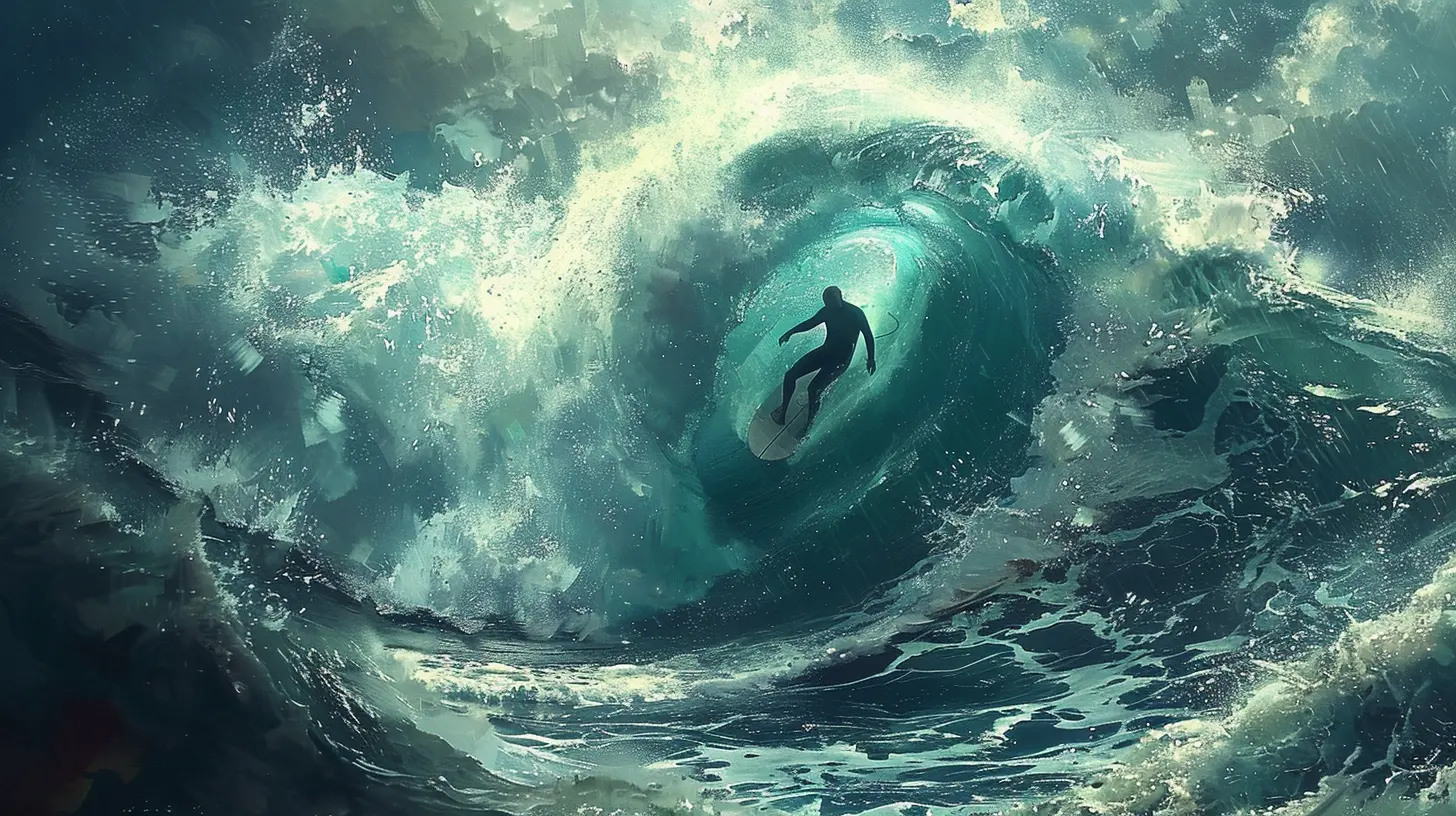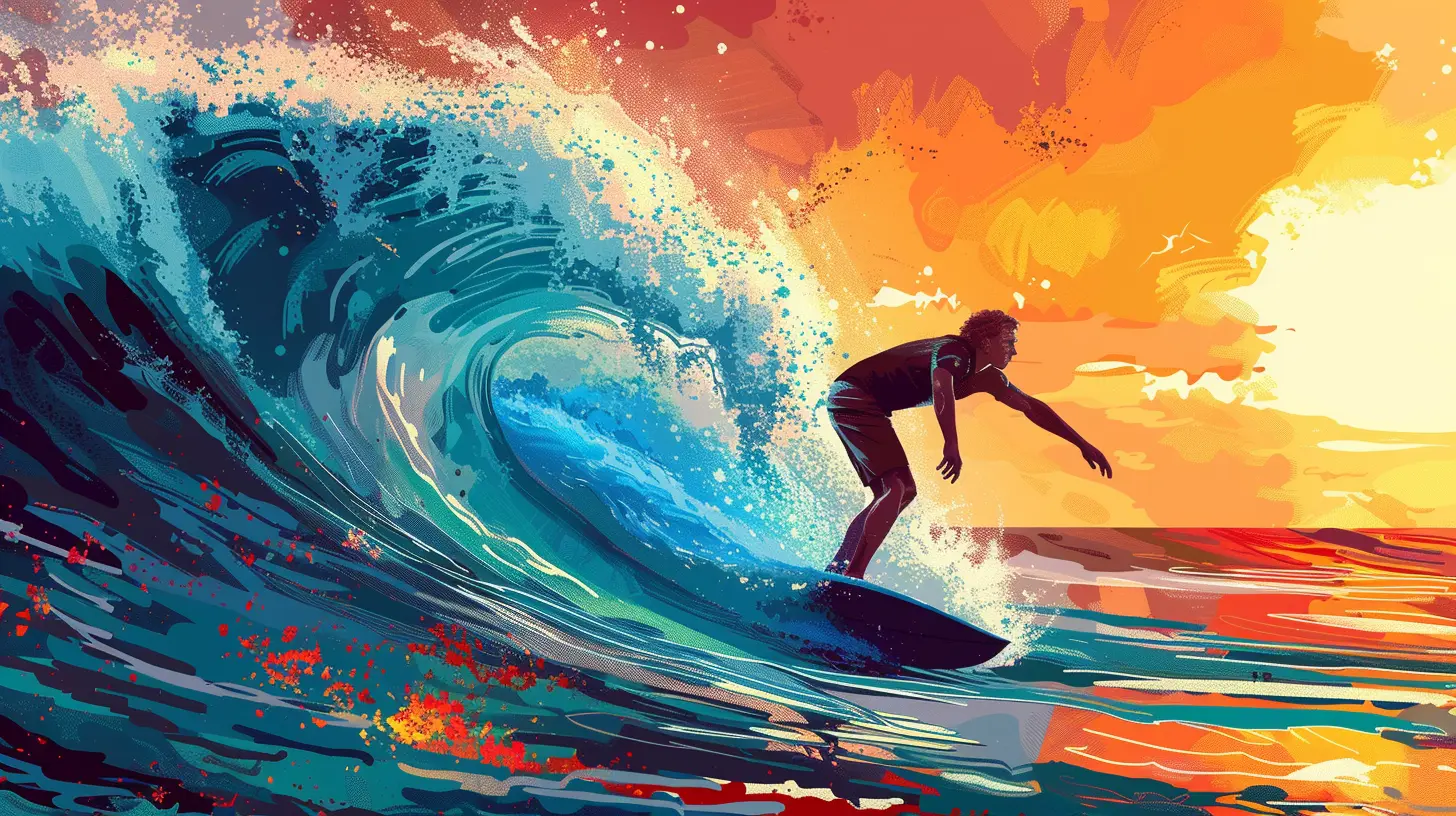18 April 2025
Surfing is more than just riding waves—it's a battle of endurance, patience, and resilience. While physical strength and technique are essential, the real game-changer is mental toughness. Whether you're facing massive waves, wiping out repetitively, or dealing with unpredictable ocean conditions, your mindset determines your success. But what exactly is mental toughness, and why does it matter so much in surfing? Let’s break it down. 
What is Mental Toughness in Surfing?
Mental toughness is the ability to maintain focus, confidence, and perseverance in the face of adversity. It’s about staying calm under pressure, pushing past fear, and keeping a positive mindset—even when things don't go your way.In surfing, mental toughness helps you:
- Overcome fear of big waves and wipeouts
- Handle frustration from missed waves or bad conditions
- Stay disciplined while training
- Maintain confidence and resilience during competitions
- Adapt quickly to ocean changes
Think of it as your internal engine—it keeps you going even when the ocean tests your limits. 
How Mental Toughness Impacts Surfing Performance
1. Overcoming Fear and Anxiety
Fear is one of the biggest challenges in surfing. Whether it’s the fear of getting caught inside, wiping out on a reef, or encountering the unknown, it’s real—and completely normal. But how you manage that fear makes all the difference.Surfers with strong mental resilience learn to reframe fear. Instead of seeing it as a barrier, they treat it as part of the experience. They focus on their breathing, visualize success, and remind themselves that fear is just their mind preparing them for action.
> "Fear is only as deep as the mind allows." – A powerful mantra for surfers.
2. Staying Focused in Challenging Conditions
The ocean is unpredictable. One moment, you're cruising on clean waves, and the next, you're fighting against choppy waters and strong currents. Mental toughness helps you stay focused and composed, no matter what the ocean throws at you.Surfing requires split-second decision-making. If your mind is cluttered with doubt or frustration, it slows you down. Elite surfers develop laser-sharp concentration—they stay present, react quickly, and make smart choices.
3. Building Resilience After Wipeouts
Let’s be real—wipeouts are brutal. Getting tumbled by a massive wave can shake your confidence. But every great surfer knows that wipeouts are part of the process.Mentally tough surfers don’t dwell on failure. Instead, they:
- Analyze what went wrong
- Adjust their technique
- Get back on the board with confidence
It’s this ability to bounce back quickly that separates good surfers from great ones.
4. Handling Pressure in Competitions
Competitive surfing is a mental game. You’re not just battling the waves—you’re battling nerves, expectations, and sometimes self-doubt. Mental toughness helps surfers stay calm, composed, and in control when the stakes are high.Top surfers use visualization techniques, positive self-talk, and breathing exercises to keep nerves in check. They trust their training, focus on execution, and embrace the moment instead of letting pressure overwhelm them.
5. Mastering Patience and Discipline
Surfing is not a sport of instant gratification. It takes years of practice, countless hours in the water, and a whole lot of patience. The mentally tough surfer understands that progress is a journey.There will be days when the waves don’t cooperate, sessions where you feel stuck, and moments where frustration kicks in. But those who push through with determination end up mastering the art of surfing. 
How to Develop Mental Toughness in Surfing
If you want to enhance your mental game, here are some proven strategies that can help:1. Visualization Techniques
Before paddling out, visualize yourself succeeding. Imagine yourself charging big waves, making seamless turns, and handling wipeouts with ease. This mental rehearsal trains your brain for success.2. Controlled Breathing
Breath control is a game-changer. When fear kicks in, breathing helps regulate emotions. Practice deep breathing techniques—this keeps you calm, focused, and in control.3. Embracing the Power of Positivity
Negative thoughts can kill your confidence. Instead of thinking, "I’ll never make this wave," reframe it as, "I’m improving with every attempt." Positive self-talk rewires your mindset for success.4. Mindfulness and Staying Present
Overthinking ruins performance. Great surfers stay present, reacting only to what is happening in the moment. Practicing mindfulness—through meditation or focusing solely on the waves—sharpens awareness and concentration.5. Learning from Setbacks
Every failure is a lesson. Instead of seeing wipeouts or mistakes as losses, treat them as stepping stones to progress. The best surfers embrace failure as an opportunity to grow.
The Mental Side of Big Wave Surfing
Big wave surfing is the ultimate test of mental toughness. Imagine dropping down a 50-foot wave—your heart races, adrenaline surges, and survival instincts kick in. Surfers who take on these giants have mastered fear management, confidence, and rapid decision-making.They train not just physically but mentally—using breath-hold training, mental visualization, and relentless confidence-building to prepare for the unimaginable.
> "The best big wave surfers aren’t the strongest—they’re the ones who trust themselves the most."
Final Thoughts
Surfing isn’t just about physical ability—it’s about having the right mindset to face the ocean’s challenges. Whether you're tackling small waves or charging toward giants, mental resilience is what will set you apart.So next time you're out in the water, remember: stay calm, trust yourself, and embrace the journey. Because in surfing, as in life, it's not about avoiding wipeouts—it's about getting back up every time.


